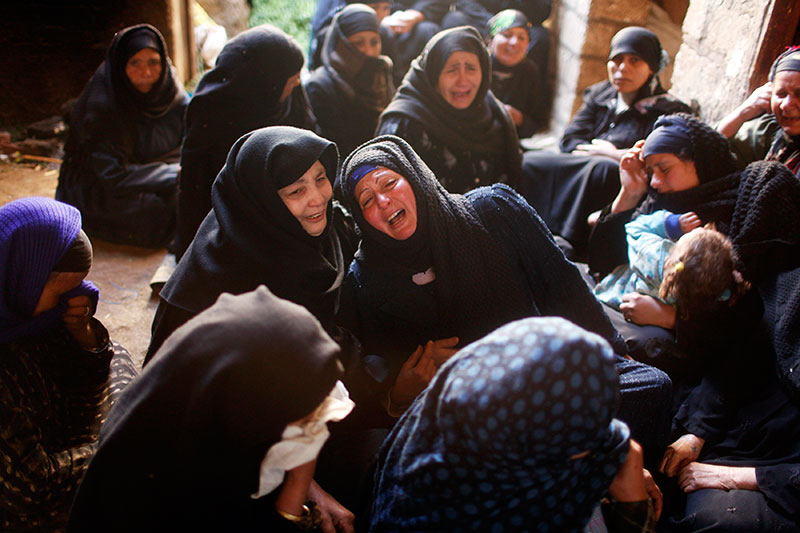
The Islamic terror group known as ISIS continued its march across Iraq and Syria this week, tearing down artifacts and persecuting religious minorities. However, they have directed much of their wrath against Assyrian Christians and their ancient culture.
According to Peter BetBasoo of Assyrian International News Agency, ISIS has carried out atrocities against Assyrian Christians in both Syria and Iraq. These actions included murders, kidnappings of hundreds of men, women, and children, and teardowns of cultural resources, including burning down churches and priceless artifacts as shown in a YouTube video.
"This is genocide -- there is no other word for it," BetBasso wrote. "This is the erasure of a nation from the land which it has inhabited for 6764 years."
BetBasoo noted the irony surrounding the timing of the ISIS attacks, noting that it is currently taking place on the 100th anniversary of the Armenian Genocide.
"It is ironic that the ISIS attacks on Assyrians in Syria is occurring in 2015, the centennial anniversary of the 1915 Turkish genocide of Assyrians, Greeks and Armenians, in which 750,000 Assyrians were killed (75 percent), 500,000 Pontic Greeks and 1.5 million Armenians," BetBasoo wrote.
BetBasoo contended that ISIS knew what it was doing when the terror group carried out their attacks on important historical dates for Assyrian Christians.
"ISIS is pretty savvy and is historically informed," BetBasoo wrote. "When ISIS pushed into the Nineveh Plain in Iraq last year, forcing 200,000 Assyrians to flee their homes, they began their invasion on Aug. 7, which is the official Assyrian Martyrs Day, a day on which each year Assyrians remember their fallen."
BetBasoo argued that ISIS was sending a message through its persecution of Assyrian Christians that it plans to destroy "the very foundations of world civilization."
"It is in Mesopotamia where civilization as we know it began," BetBasoo wrote. "Destroying Assyrian artifacts is ISIS's message to the world that it aims to eradicate the very basis of its civilization because it is not Islamic."
According to Sean Savage of JNS.org, ISIS has attacked 35 Assyrian villages along the Khabur River in Hasaka, a city in northeastern Syria. Jeff Gardner, a spokesman for Restore Nineveh Now Initiative, spoke about ISIS actions against Assyrian Christians.
"We are absolutely appalled, but not surprised, by the actions of [ISIS]," Gardner said. "They continue to do what they do - terrorize, murder and pillage."
Savage reported that local Arab tribal leaders in Syria have attempted to act as intermediaries between ISIS and the Assyrian Christian community. The leaders wanted both sides to do a prisoner swap and urged ISIS to release civilian Assyrian Christians caught in the crossfire.
"Immediately for Syria, we're calling for much broader international intervention," Gardner said. "We are calling on the public to support our relief efforts. Both governments and people need to respond to this crisis."
According to Savage, the video showed ISIS fighters supposedly destroying priceless artifacts related to the Assyrian Empire and other ancient civilizations inside the Mosul Museum in Iraq. ISIS justified its destruction by claiming that they were forms of idolatry under its radical interpretation of Islam.
"The Prophet Mohammed took down idols with his bare hands when he went into Mecca," an ISIS fighter said. "We were ordered by our prophet to take down idols and destroy them, and the companions of the prophet did this after this time, when they conquered countries."
BetBasoo warned that the international community must react to ISIS soon or there will be dire consequences for the entire world.
"The civilized world must find the courage to accept the force of its moral superiority and act on it," BetBasoo wrote. "If it does not, the world will fall into shadow."
Gardner told JNS.org that would take more than mere words and air strikes from the international community to take out ISIS and protect minority groups in the region.
"We need to move past just airstrikes and either mobilize international forces or continue to train indigenous forces like the Assyrians," Gardner said.
















